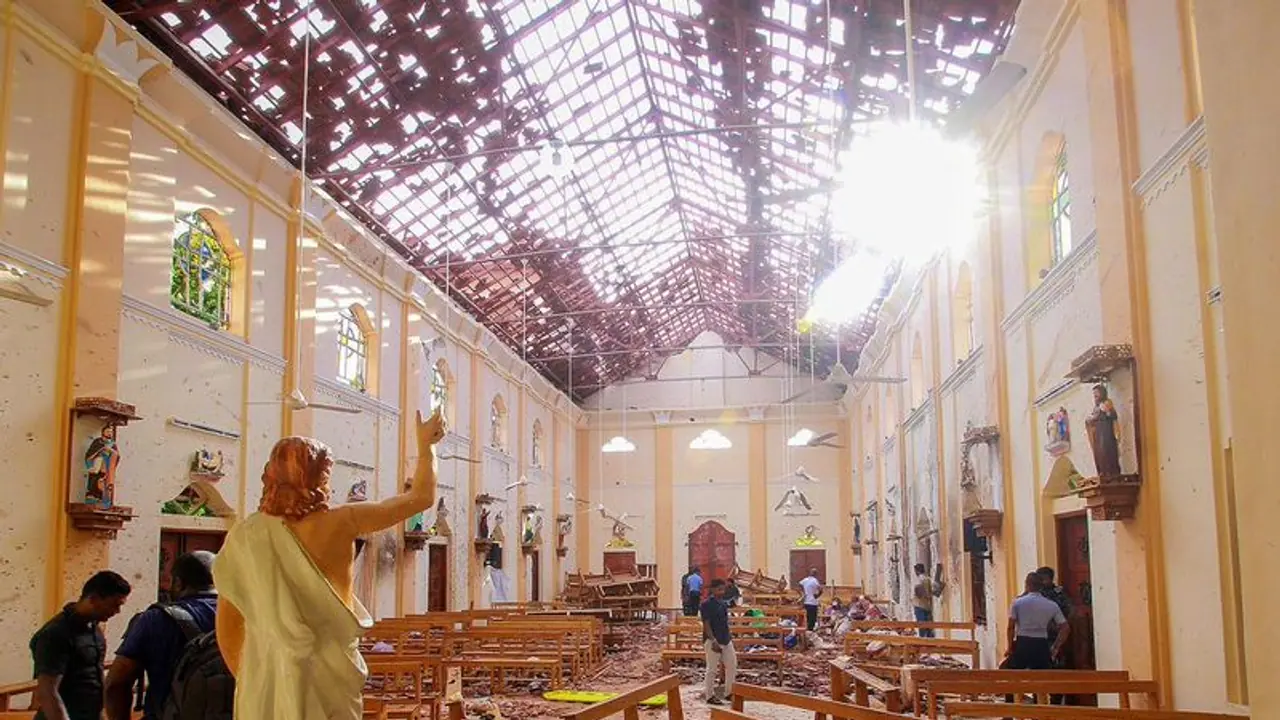The problem for Sri Lanka is every group that comprises its complex society is against each other. The Sinhalese Buddhist majority (roughly 70% of the population) is against the Tamils, the Muslims, and also against the Sinhalese Christians.
Ever since the hapless Tamils were wiped out in the summer of 2009 in one of the heinous ethnic cullings in recent history, Sri Lanka was seen as being relatively calm, at least a far cry from the bombs and bullets-filled life that it was becoming inured to from the mid-1980s.
But quietude and peace always seem a misnomer in the island country which seems forever splintered on religious and ethnic lines. Even during the so-called periods of tranquility since 2009, there have been episodic instances of strife especially on communal grounds. Of course, mercifully, none of them was in the range of the monumental tragedy that snuffed out nearly 300 lives through coordinated, heartless eight bomb blasts across Colombo and its vast neighbourhood this Easter Sunday.
The problem for Sri Lanka is every group that comprises its complex society is against each other. The Sinhalese Buddhist majority (roughly 70% of the population) is against the Tamils, the Muslims, and also against the Sinhalese Christians. The Tamil ethnic group while fighting the Buddhists, was also waging a small battle against the Muslims, who for their part in recent times, have been up in arms against the Christians, who have also become militant in their own way. Also, the Lankan Tamils are made up of Hindus, Christians. And there are many Tamil speaking Muslims.
"To make sense of Sri Lankan society is almost impossible. Outsiders cannot cut through the complex swathe of connections and confusions that exist among the various components of our society," said Damikka Gunaratne, a professor in Colombo, a few years ago when this correspondent was in Colombo.
But bulk of the problem stems from what Amarnath Amarasingam, a senior research fellow at the Institute for Strategic Dialogue, told The New Yorker as "Buddhist majority's minority complex". Amarasingam has been quoted as saying that "This idea is that they may be majority in the country but they are actually the minority in the broader region. If you take into account Tamil Nadu, and things like that, with 70 million Tamils just across the border, there has often been this insecurity among hard-line members of Sinhalese community."
But whether there is real insecurity among Sri Lankan majority or not, the fact is its closest neighbour India needs to be wary of its own security in the light of the tragic bomb blasts in Sri Lanka. The rise of Jihadist forces, whose fingerprints are now being seen in the blasts, in India's vulnerable southern end can only be a matter of concern for New Delhi.
The Sri Lankan authorities have confirmed that the National Tawheed Jamaat as being responsible for the bomb attacks. Worryingly, Colombo has also suggested that these home-grown terrorists had plenty of foreign links. Around 2016, 32 Muslims from Sri Lanka reportedly joined the IS. And there have been charges of extreme radicalisation among the close-knit Muslim community in Lanka, and the steady money from the Gulf countries was proving to be a problem. Further, the tentacles of terrorist groups like LeT have also reached Sri Lanka via Pakistan, which had gotten close to Colombo riding on the shoulder of China, which had made strategic overtures in Lanka taking advantage of India's uneasiness owing to Tamil ethnic conflict.
The problem for New Delhi is its foreign policy decision vis-a-vis Colombo has to take into account two diverse strands. One) The Tamil Nadu reality. Two) The strategic compulsions in the Indian Ocean neighbourhood.
The parties and the public in Tamil Nadu want no great links with Sri Lanka. But if New Delhi took this into consideration, it will only play into the hands of China and Pakistan who will use the occasion to gain strength in the region. Beijing and Islamabad becoming powerful alongside India's Southern borders is a danger that India can ill-afford to let flourish.
Caught in this cleft stick, India has to do a delicate balancing act, which is not easy.
In the event, what India should get down to finding out is whether the Tamil Nadu Tawheed Jamaat has any connection with this National Tawheed Jamaat operating in Sri Lanka. The TN outfit has already claimed that it shared only the name and that it has nothing to do with its namesake in Lanka.
But Tamil Nadu Tawheed Jamaat is known for its hardline stands and the videos of its controversial founder P Jainulabdeen were known to radicalise impressionable Islamic youth. This is not to implicate the outfit through suggestion. The point is the security phalanx here should investigate everything possible and not leave anything to chance. For, the mood in Tamil Nadu is anti-New Delhi, and in this climate all kinds of complexities can creep in.
The local political parties and sundry other outfits in Tamil Nadu have a history of betraying both the Tamils (in Lanka) and India's interests on different occasions. In the event, New Delhi has to be careful and watch its steps. National security alone should be its guiding light.
